#Ted Chiang
Text
"There was an exchange on Twitter a while back where someone said, ‘What is artificial intelligence?' And someone else said, 'A poor choice of words in 1954'," he says. "And, you know, they’re right. I think that if we had chosen a different phrase for it, back in the '50s, we might have avoided a lot of the confusion that we're having now."
So if he had to invent a term, what would it be? His answer is instant: applied statistics. "It's genuinely amazing that...these sorts of things can be extracted from a statistical analysis of a large body of text," he says. But, in his view, that doesn't make the tools intelligent. Applied statistics is a far more precise descriptor, "but no one wants to use that term, because it's not as sexy".
'The machines we have now are not conscious', Lunch with the FT, Ted Chiang, by Madhumita Murgia, 3 June/4 June 2023
#quote#Ted Chiang#AI#artificial intelligence#technology#ChatGPT#Madhumita Murgia#intelligence#consciousness#sentience#scifi#science fiction#Chiang#statistics#applied statistics#terminology#language#digital#computers
12K notes
·
View notes
Quote
Imagine what it would look like if ChatGPT were a lossless algorithm. If that were the case, it would always answer questions by providing a verbatim quote from a relevant Web page. We would probably regard the software as only a slight improvement over a conventional search engine, and be less impressed by it. The fact that ChatGPT rephrases material from the Web instead of quoting it word for word makes it seem like a student expressing ideas in her own words, rather than simply regurgitating what she’s read; it creates the illusion that ChatGPT understands the material. In human students, rote memorization isn’t an indicator of genuine learning, so ChatGPT’s inability to produce exact quotes from Web pages is precisely what makes us think that it has learned something. When we’re dealing with sequences of words, lossy compression looks smarter than lossless compression.
Ted Chiang’s essay about ChatGPT is required reading
9K notes
·
View notes
Text
“The machines we have now, they’re not conscious,” he says. “When one person teaches another person, that is an interaction between consciousnesses.” Meanwhile, AI models are trained by toggling so-called “weights” or the strength of connections between different variables in the model, in order to get a desired output. “It would be a real mistake to think that when you’re teaching a child, all you are doing is adjusting the weights in a network.”
Chiang’s main objection, a writerly one, is with the words we choose to describe all this. Anthropomorphic language such as “learn”, “understand”, “know” and personal pronouns such as “I” that AI engineers and journalists project on to chatbots such as ChatGPT create an illusion. This hasty shorthand pushes all of us, he says — even those intimately familiar with how these systems work — towards seeing sparks of sentience in AI tools, where there are none.
“There was an exchange on Twitter a while back where someone said, ‘What is artificial intelligence?’ And someone else said, ‘A poor choice of words in 1954’,” he says. “And, you know, they’re right. I think that if we had chosen a different phrase for it, back in the ’50s, we might have avoided a lot of the confusion that we’re having now.”
So if he had to invent a term, what would it be? His answer is instant: applied statistics.
“It’s genuinely amazing that . . . these sorts of things can be extracted from a statistical analysis of a large body of text,” he says. But, in his view, that doesn’t make the tools intelligent. Applied statistics is a far more precise descriptor, “but no one wants to use that term, because it’s not as sexy”.
[...]
Given his fascination with the relationship between language and intelligence, I’m particularly curious about his views on AI writing, the type of text produced by the likes of ChatGPT. How, I ask, will machine-generated words change the type of writing we both do? For the first time in our conversation, I see a flash of irritation. “Do they write things that speak to people? I mean, has there been any ChatGPT-generated essay that actually spoke to people?” he says.
Chiang’s view is that large language models (or LLMs), the technology underlying chatbots such as ChatGPT and Google’s Bard, are useful mostly for producing filler text that no one necessarily wants to read or write, tasks that anthropologist David Graeber called “bullshit jobs”. AI-generated text is not delightful, but it could perhaps be useful in those certain areas, he concedes.
“But the fact that LLMs are able to do some of that — that’s not exactly a resounding endorsement of their abilities,” he says. “That’s more a statement about how much bullshit we are required to generate and deal with in our daily lives.”
5K notes
·
View notes
Text
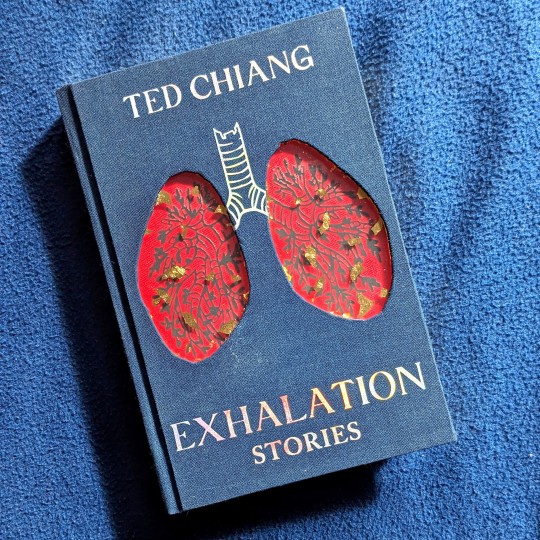

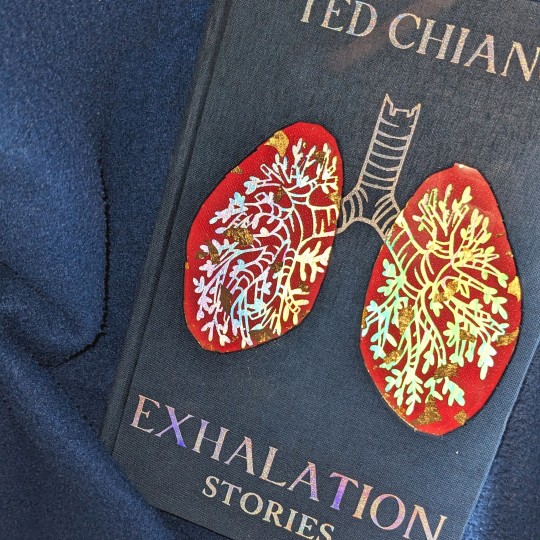
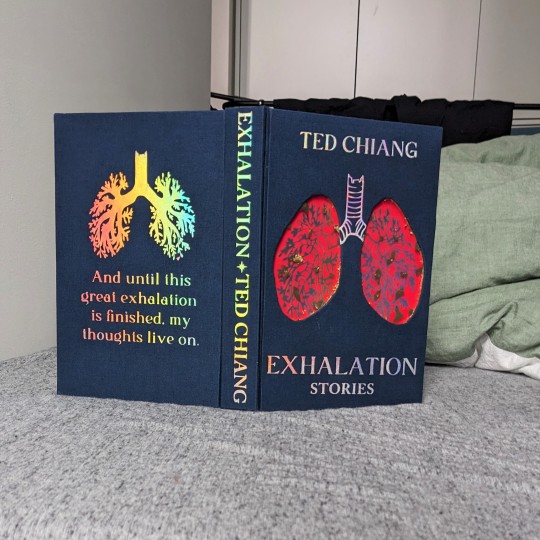

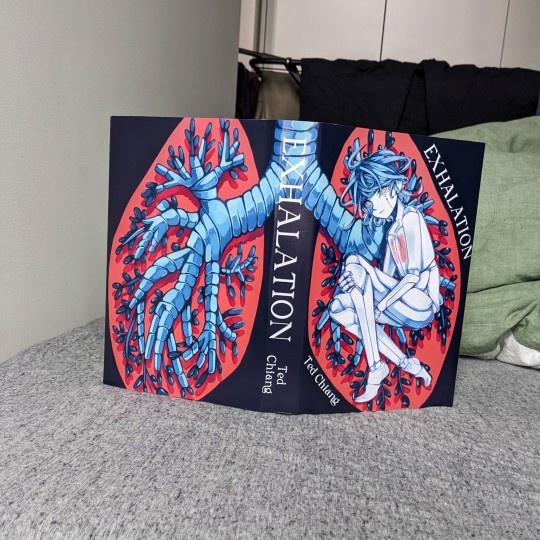
Exhalation by Ted Chiang
I knew I wanted to do a cut out cover at some point, but I also wanted the cutout to serve a good purpose. The front cover is made of 4 layers:
cardstock, laminated gold leafs, thicc cardstock, and then bookcloth with reflective htv ironed on it. Gottay turn on the flash light to see it shine on camera.
I wanted to achieve a floating affect for the gold leafs above the lungs. edges are gold foiled (still practicing that bit).
The dust jacket illustration took me the longest - 12h to paint it. But it's fun! I started book binding to have something to do while I had bad art block, but it looks like I'm back to making art again too while binding books, which is neat :)
362 notes
·
View notes
Text


337 notes
·
View notes
Text
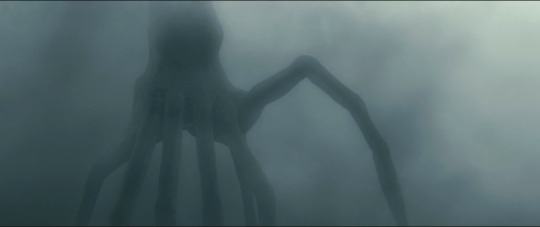


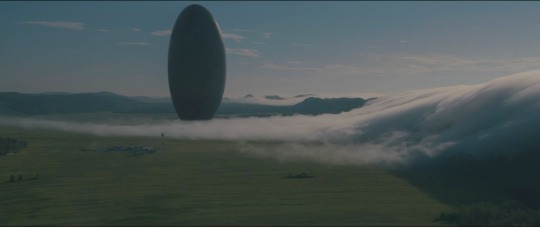





— Arrival (2016), directed by Denis Villeneuve, based on the short story Story of Your Life (1998) by Ted Chiang.
#arrival#2016#screencaps#denis villeneuve#ted chiang#story of your life#amy adams#jeremy renner#space#tentacles#johann johannsson#movie#cinema#actors#beauty#movies
86 notes
·
View notes
Text
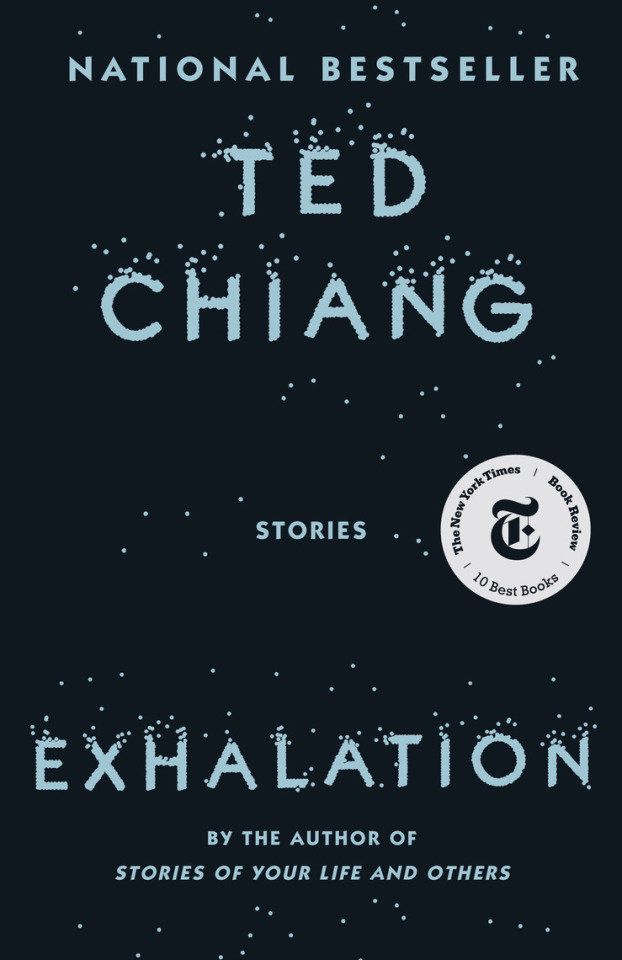
27 notes
·
View notes
Text

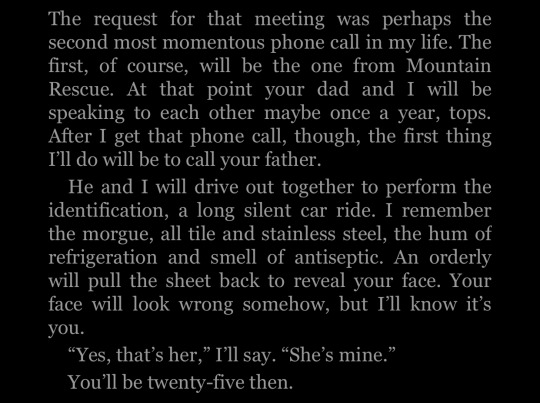

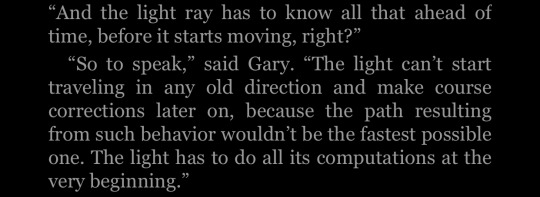



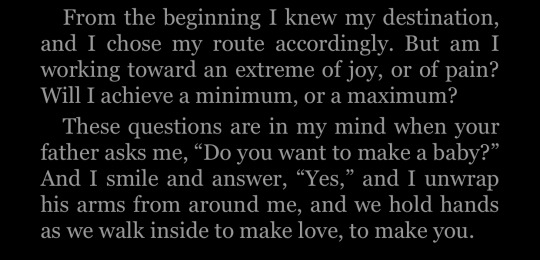
“Story of Your Life,” by Ted Chiang
#story of your life#ted chiang#arrival#had to make my own quotes post w my favs for maximum damage#amaryllis
31 notes
·
View notes
Text



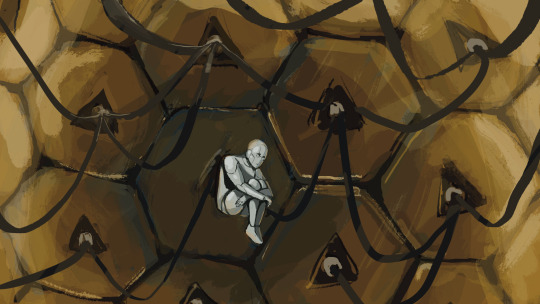
key frames i did for Ted Chiang’s Exhalation for this weeks class assignment
I haven’t done anything like this before, it was a fun challenge! And Exhalation was a beautiful short story, I highly recommend checking it out!
PDF
audiobook
31 notes
·
View notes
Text
Our biggest source of confusion was the heptapods' "writing.” It didn't appear to be writing at all; it looked more like a bunch of intricate graphic designs. The logograms weren't arranged in rows, or a spiral, or any linear fashion. Instead, Flapper or Raspberry would write a sentence by sticking together as many logograms as needed into a giant conglomeration.
This form of writing was reminiscent of primitive sign systems, which required a reader to know a message's context in order to understand it. Such systems were considered too limited for systematic recording of information. Yet it was unlikely that the heptapods developed their level of technology with only an oral tradition. That implied one of three possibilities: the first was that the heptapods had a true writing system, but they didn't want to use it in front of us; Colonel Weber would identify with that one. The second was that the heptapods hadn't originated the technology they were using; they were illiterates using someone else's technology. The third, and most interesting to me, was that the heptapods were using a nonlinear system of orthography that qualified as true writing.
Ted Chiang, Story of Your Life
#quote#Ted Chiang#Chiang#scifi#science fiction#language#heptapods#heptapod#linguistics#communication#technology#orthography#Story of Your Life
49 notes
·
View notes
Quote
The Luddites were not anti-technology; what they wanted was economic justice.
Once again, Ted Chiang is a must-read on the rise of A.I. and the dangers of runaway capitalism.
79 notes
·
View notes
Text

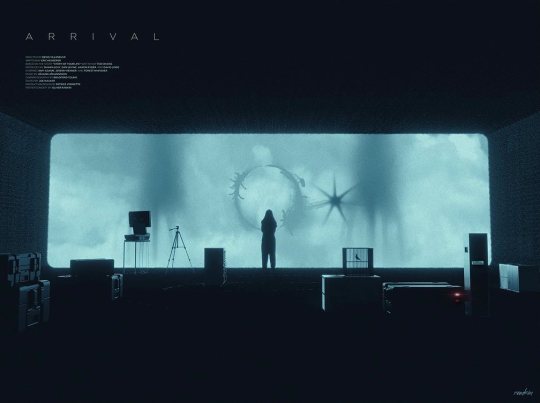
#Arrival#Arrival movie#Arrival 2016#Denis Villeneuve#Villeneuve#director#filmmaker#Story of Your Life#Ted Chiang#Bradford Young#Jóhann Jóhannsson#Joe Walker#Amy Adams#aliens#sci-fi#mystery#drama#movie#illustration#illustrations#perfect#2016#cinema
146 notes
·
View notes
Text
In war there are no winners, only widows.
— Arrival (2016), directed by Denis Villeneuve and adapted by Eric Heisserer. This sentence is said in Mandarin, and no translation is provided on screen.
#arrival#ted chiang#story of your life#oppenheimer#nuclear war#world war 2#world war ii#center for nuclear disarmament#hiroshima and nagasaki
49 notes
·
View notes
Text
It’s no coincidence that “aspiration” means both hope and the act of breathing.
Ted Chiang, The Great Silence
14 notes
·
View notes
Text
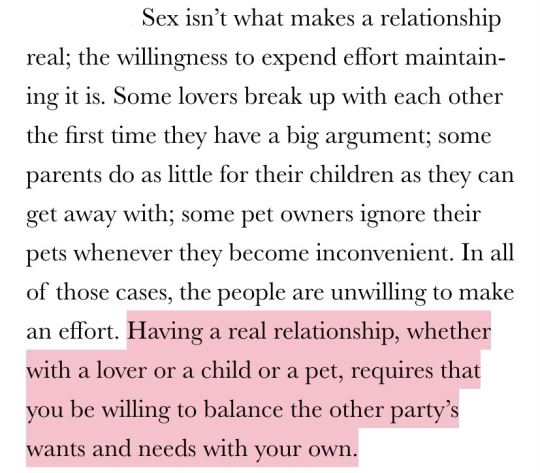
— ted chiang, exhalation
#words.#ted chiang#exhalation#chiang leaving this in the post-story notes is the literary equivalent to the moots leaving gems in the tags imo#anyway i rly enjoyed exhalation!! chiang makes very readable sff….has very thoughtful takes on the emotional impact of spectech……
27 notes
·
View notes
Text
Short Story Tournament
THE CASK OF AMONTILLADO by Edgar Allen Poe (1846) (link) - tw: death
“I drink,” he said, “to the buried that repose around us.”
STORY OF YOUR LIFE by Ted Chiang (1998) (link) - tw: death
Freedom isn't an illusion; it's perfectly real in the context of sequential consciousness. Within the context of simultaneous consciousness, freedom is not meaningful, but neither is coercion; it's simply a different context, no more or less valid than the other.
#short story tournament#the cask of amontillado#story of your life#edgar allen poe#ted chiang#round 4#polls
21 notes
·
View notes